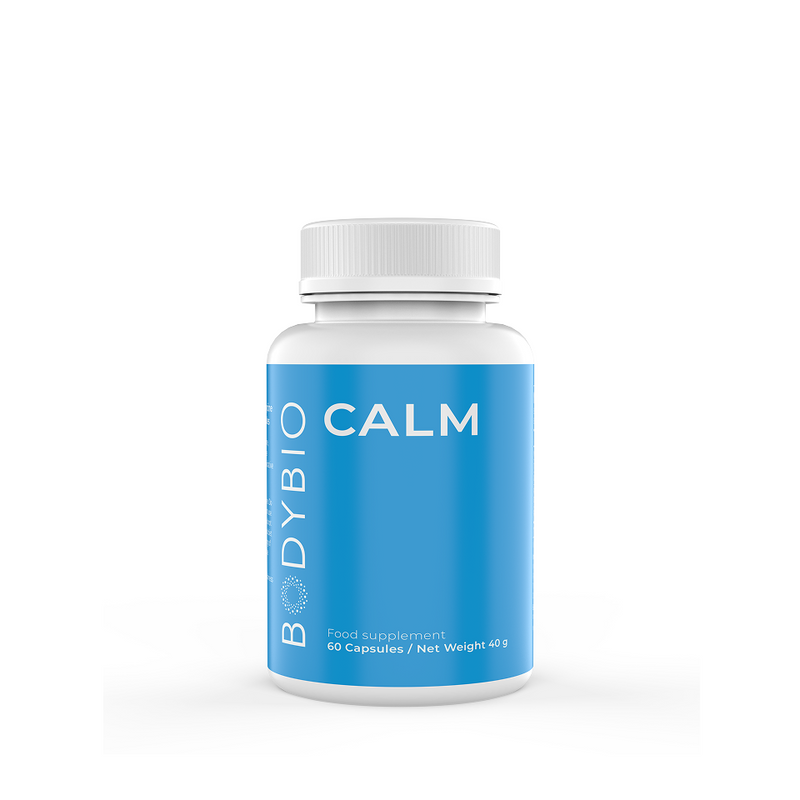How to Navigate Election Anxiety & Support Your Mental Health Through Election Season
Key Takeaways:
Key Points:
- Election anxiety is real and can be triggered by media overload, political debates, and personal concerns about the post-election future.
- Factors like constant media exposure, political discussions, and personal investment in political issues can significantly amplify stress in the mind and body.
- There are ways to curb your social media use during election season — which should be an everyday task.
- Finding ways to manage your cortisol levels is crucial for maintaining emotional and physical well-being during stressful times.
- As election season approaches, it's essential to prioritize your mental health through breaks, supportive conversations, and self-care to foster resilience during election stress.
Election season can be a stressful time for many people. The constant flow of news, political ads, debates, and conversations about the future of the country can lead to heightened anxiety, tension, and uncertainty. While participating in the democratic process is important, it's equally vital to take care of your mental health. Understanding how to manage election anxiety can make a significant difference in navigating this often overwhelming time.
Table of Contents:
- Is Election Anxiety Real?
- How Social Media Impacts (Election) Anxiety
- How to Manage Election Anxiety
- Nutrition, Supplements, and Other Methods to Lower Election Anxiety
- Prioritize Your Mental Health During This Election
Is Election Anxiety Real?
Election anxiety is real and increasingly common, especially in polarized political climates. The American Psychological Association (APA) defines election anxiety as feelings of worry or fear tied to the election outcome and the political climate.
Constant media exposure, heated discussions, and personal investment in the election can worsen mental and even physical stress. Research shows frequent news consumption during elections is linked to higher anxiety levels. If you already experience anxiety, election season can be particularly triggering. Your concerns are valid — recognizing these feelings is essential in taking steps to manage election anxiety.
How Social Media Impacts (Election) Anxiety
Social media significantly amplifies election anxiety. Platforms like X (Twitter) and Instagram flood users with political content, heated debates, and sensationalized news, often leaving users feeling overwhelmed.
Studies show frequent social media use, especially for political updates, correlates with higher anxiety levels. The algorithm-driven nature of these platforms creates a constant stream of information, making it difficult to escape election-related content. Additionally, disagreements on social media can escalate quickly, adding to anxiety.
To reduce its impact, set boundaries on your social media use. This helps minimize the emotional toll social media can take during stressful periods like election season.
Ways to Curb Your Social Media Use
Here are some effective methods you can utilize to reduce social media usage and manage election anxiety:
- Set Time Limits: Use app timers to limit daily usage.
- Schedule Breaks: Designate times for checking updates rather than constant scrolling.
- Unfollow Triggers: Unfollow anxiety-inducing accounts, focusing on positive content instead.
- Disable Notifications: Turn off notifications to avoid distractions.
- Engage in Offline Activities: Replace social media time with exercise, reading, or spending time with loved ones.
- Practice Mindfulness: Use mindfulness techniques like meditation, yoga, or EFT tapping, which involves tapping on acupressure points, to reduce stress and counteract social media’s emotional impact.
It’s also important to note that curbing your social media use should be an everyday task. Indulging in social media for extended periods of time can result in digital stimulation overload — which may cause users to develop popcorn brain.
Practical Strategies For Managing Election Anxiety
As election season approaches, it’s essential to manage your anxiety for the sake of your mental well-being. Here are a few actions you can take to stay grounded throughout the election season:
- Limit Media Exposure: Stick to specific times for consuming news from reliable sources.
- Practice Mindfulness: Techniques like yoga, deep breathing, or EFT tapping can help alleviate stress.
- Talk About It: Share your feelings with friends or family to gain support and perspective.
- Stay Active: Regular exercise improves mood and lowers anxiety levels.
- Get Involved: Volunteering in your community or participating in local discussions can give you a sense of control and purpose, reducing election-related stress.
Nutrition, Supplements, and Other Methods to Lower (Election) Anxiety
Paying attention to your nutrition can help manage stress during election season. A diet rich in whole foods (fruits, vegetables, healthy fats, whole grains, and lean proteins) provides essential nutrients for brain health and emotional stability.
Incorporating relaxation techniques such as deep breathing exercises, yoga, meditation, or EFT tapping can further enhance emotional resilience during this tense period. By prioritizing nutrition, utilizing practical tips to manage daily stress, exploring beneficial supplements, and practicing relaxation methods, we can all empower ourselves to face election anxiety with greater ease and stability.
Cortisol and Its Role in Anxiety
Cortisol, the body’s “stress hormone,” is released by the adrenal glands during stressful situations. Election season stress can cause cortisol levels to spike, leading to increased anxiety, restlessness, and difficulty focusing. Chronically elevated cortisol can weaken immunity, cause fatigue, and worsen anxiety over time.
Managing cortisol levels is essential for mental and physical well-being, especially during high-stress periods like elections. Finding ways to reduce cortisol naturally can help alleviate feelings of anxiety and protect your health.
Ways to Reduce Cortisol During Election Season
Here are a few effective ways to lower cortisol and manage anxiety naturally:
- Get Adequate Sleep: Aim for 7-9 hours per night to regulate cortisol levels.
- Limit Caffeine and Alcohol: These stimulants can spike cortisol levels, so replace them with calming herbal teas like chamomile.
Another great way to lower cortisol naturally is to maintain a healthy diet and explore supplements known for reducing stress. A balanced approach to nutrition can be a powerful tool in maintaining emotional stability during high-stress times.
Nutrition for Lowering Anxiety and Balancing Cortisol
Increase Healthy Fats: Omega-3 fatty acids, found in fatty fish (salmon, mackerel) and plant-based sources (flaxseeds, walnuts), help reduce anxiety and regulate cortisol by supporting brain and hormone health. Additionally, beneficial fats like omega-6 (unoxidized) and omega-9, found in seeds, nuts, avocados, and olive oil, contribute to overall wellness and help balance the body’s response to stress.
Antioxidants: Foods like berries, leafy greens, and nuts contain antioxidants that neutralize harmful free radicals and reduce inflammation, helping to lower anxiety and manage cortisol levels. Green tea, which contains polyphenols and L-theanine, also promotes relaxation and focus.
Magnesium & B Vitamins: Magnesium (found in leafy greens, nuts) and B vitamins (found in eggs, whole grains, legumes, and red meat) help regulate mood and cortisol, reducing anxiety.
Fiber & Probiotics: Fiber-rich foods (fruits, vegetables, legumes) and probiotics (yogurt, kefir) improve gut health, which is closely linked to mental health and stress management.
Supplements for Lowering Cortisol and Anxiety
- Taurine: A crucial amino acid that benefits both brain and body function. It boosts GABA levels, helping to soothe neurotransmitters in the brain, which fosters relaxation and promotes a sense of well-being.*
- Glycine: This important neurotransmitter aids in relaxation and effective stress management. It is one of the key inhibitory neurotransmitters in the central nervous system, playing a crucial role in calming the mind.*
- Rhodiola: A researched adaptogen known for its ability to alleviate stress, diminish mild to moderate depression, and enhance mood. It offers natural protection for the brain and has anxiety-reducing properties, helping to regulate brain chemicals without inducing drowsiness or fatigue.*
- Phosphatidylserine: This phospholipid supports balanced cortisol levels. Research indicates it may improve mood, bolster immunity, and enhance resilience to stress.*
If you feel that you’re not getting enough healthy fats in your diet, you can utilize a healthy fat supplement such as BodyBio Balance Oil. These supplements can support mental health and stress relief, especially during high-stress periods like election season.
Prioritize Your Mental Health During This Election
Election season can bring heightened stress and anxiety, but prioritizing your mental health is essential. By managing your media consumption, practicing mindfulness, eating a balanced diet, and engaging in relaxation techniques like EFT tapping, you can better navigate election-related stress. Remember, it's okay to step back, take breaks, and seek support when needed. Think of this season as resilience training — prioritizing your mental health during this time not only helps you cope with election anxiety but also builds long-term resilience for future stressors.
Abrams, Z. (2024, July 23). The impact of election stress: Is political anxiety harming your health?. American Psychological Association. https://www.apa.org/monitor/2024/10/managing-political-stress
American Psychological Association. (2020, October 7). 2020 Presidential Election a Source of Significant Stress For More Americans Than 2016 Presidential Race. American Psychological Association. https://www.apa.org/news/press/releases/2020/10/election-stress
American Psychological Association. (2016). APA Survey Reveals 2016 Presidential Election Source of Significant Stress for More Than Half of Americans. American Psychological Association. https://www.apa.org/news/press/releases/2016/10/presidential-election-stress
Baumeister J, Barthel T, Geiss KR, Weiss M. Influence of phosphatidylserine on cognitive performance and cortical activity after induced stress. Nutritional Neuroscience. 2008;11(3):103-110. https://doi.org/10.1179/147683008X301478
Berding K, Bastiaanssen TFS, Moloney GM, et al. Feed your microbes to deal with stress: a psychobiotic diet impacts microbial stability and perceived stress in a healthy adult population. Mol Psychiatry. 2023;28(2):601-610. https://doi.org/10.1038/s41380-022-01817-y
Gundersen RY, Vaagenes P, Breivik T, Fonnum F, Opstad PK. Glycine – an important neurotransmitter and cytoprotective agent. Acta Anaesthesiol Scand. 2005;49(8):1108-1116. https://doi.org/10.1111/j.1399-6576.2005.00786.x
Konstantinos F, Heun R. The effects of Rhodiola Rosea supplementation on depression, anxiety and mood – A Systematic Review. Global Psychiatry. 2020;3(1):72-82. https://doi.org/10.2478/gp-2019-0022
Madison AA, Belury MA, Andridge R, et al. Omega-3 supplementation and stress reactivity of cellular aging biomarkers: an ancillary substudy of a randomized, controlled trial in midlife adults. Mol Psychiatry. 2021;26(7):3034-3042. https://doi.org/10.1038/s41380-021-01077-2
Mukhopadhyay S. (2022). Elections have (health) consequences: Depression, anxiety, and the 2020 presidential election. Economics and human biology, 47, 101191. https://doi.org/10.1016/j.ehb.2022.101191
(N.d.). American Psychological Association. Retrieved October 1, 2024, from https://www.apa.org/news/press/releases/stress/2016/presidential-election.pdf.
Noah L, Dye L, Bois De Fer B, Mazur A, Pickering G, Pouteau E. Effect of magnesium and vitamin B6 supplementation on mental health and quality of life in stressed healthy adults: Post‐hoc analysis of a randomised controlled trial. Stress and Health. 2021;37(5):1000-1009. https://doi.org/10.1002/smi.3051
Ochoa-de la Paz L, Zenteno E, Gulias-Cañizo R, Quiroz-Mercado H. Taurine and GABA neurotransmitter receptors, a relationship with therapeutic potential? Expert Review of Neurotherapeutics. 2019;19(4):289-291. https://doi.org/10.1080/14737175.2019.1593827
Patani A, Balram D, Yadav VK, Lian KY, Patel A, Sahoo DK. Harnessing the power of nutritional antioxidants against adrenal hormone imbalance-associated oxidative stress. Front Endocrinol (Lausanne). 2023;14:1271521. https://doi.org/10.3389/fendo.2023.1271521
Smith K. B. (2022). Politics is making us sick: The negative impact of political engagement on public health during the Trump administration. PloS one, 17(1), e0262022. https://doi.org/10.1371/journal.pone.0262022
Suciu, P. (2024, October 1). Social media could make election anxiety worse than ever. Forbes. https://www.forbes.com/sites/petersuciu/2024/09/27/social-media-could-make-election-anxiety-worse-than-ever/
Yan, B. W., Hsia, R. Y., Yeung, V., & Sloan, F. A. (2021). Changes in Mental Health Following the 2016 Presidential Election. Journal of General Internal Medicine, 36(1), 170–177. https://doi.org/10.1007/s11606-020-06328-6







